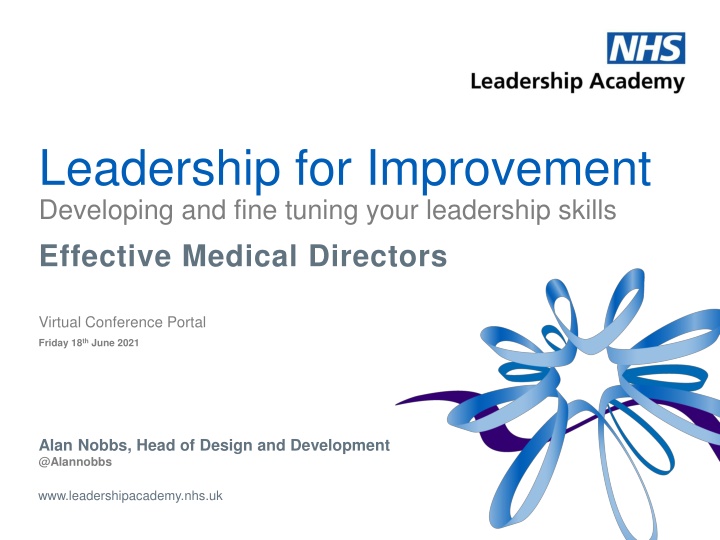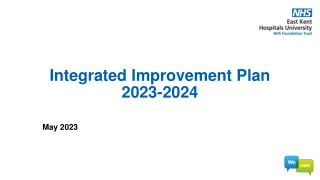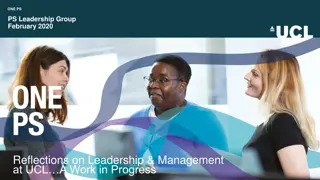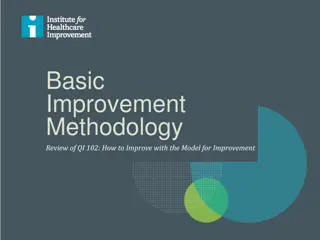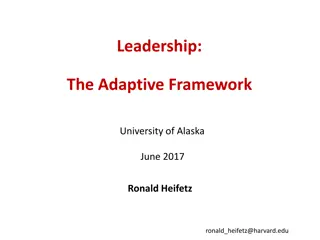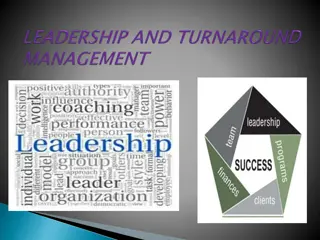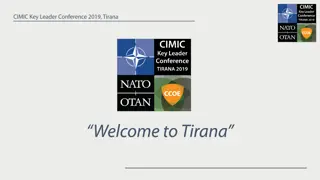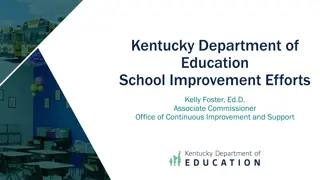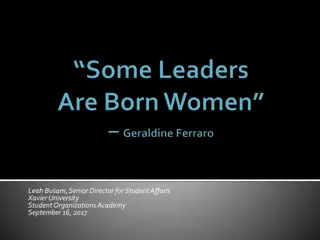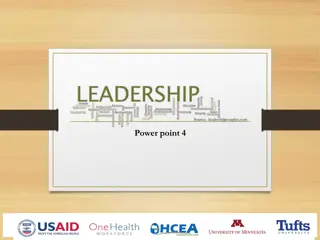Leadership for Improvement
Enhance your leadership skills with insights from experts like Alan Nobbs and Michael West. Explore the science of results and compassionate leadership. Dive into emotional intelligence and organizational culture. Discover the keys to impactful interactions and self-awareness for personal growth.
Download Presentation

Please find below an Image/Link to download the presentation.
The content on the website is provided AS IS for your information and personal use only. It may not be sold, licensed, or shared on other websites without obtaining consent from the author.If you encounter any issues during the download, it is possible that the publisher has removed the file from their server.
You are allowed to download the files provided on this website for personal or commercial use, subject to the condition that they are used lawfully. All files are the property of their respective owners.
The content on the website is provided AS IS for your information and personal use only. It may not be sold, licensed, or shared on other websites without obtaining consent from the author.
E N D
Presentation Transcript
Leadership for Improvement Developing and fine tuning your leadership skills Effective Medical Directors Virtual Conference Portal Friday 18thJune 2021 Alan Nobbs, Head of Design and Development @Alannobbs www.leadershipacademy.nhs.uk
Thinking of my ideal self, who do I really want to be and what do I want out of my life and work? From: Goleman, D., Boyatzis, R. E., & McKee, A. (2002) The New Leaders Transforming the art of leadership into the science of results
You cant impose anything on anyone and expect them to be committed to it. Source: Edgar Schein Professor Emeritus, MIT Sloan School
Knowing Doing Being
ATTENDING EMPATHISING Being fully present & listening with fascination With different views and mindsets Compassionate Leadership HELPING UNDERSTANDING Taking intelligent action to support or help Sharing an understanding of what they face Michael West Professor of Organisational Psychology, Lancaster University Management School
CONTENT TASK PROCEDURE INTERACTION PROCESS EMOTION
SELF SOCIAL RECOGNITION SELF-AWARENESS Emotional Self-awareness Accurate Self-assessment Self-confidence SOCIAL AWARENESS Empathy Organisational Awareness Service Orientation RELATIONSHIP MANAGEMENT Inspirational Leadership Developing Others Influence Change Catalyst Conflict Management Building Bonds Teamwork & Collaboration SELF-MANAGEMENT Self-control Transparency Adaptability Achievement Drive Initiative REGULATION Emotional Intelligence Model: Daniel Goleman (2002)
Every interaction by every leader at every level shapes the emerging culture of an organisation Michael West Professor of Organisational Psychology Lancaster University Management School
1. My Ideal Self: Who do I want to be? What do I want out of life and work? 4. Practicing 2. My Real Self: the new behaviour, building new neural pathways through to mastery How do I act? 5. Developing 2. My Strengths: trusting relationships, like coaches, that help, support & encourage me in each step Where my ideal and real self overlap 4. Experimenting 2. My Gaps: with new behaviour, thoughts and feelings Where my ideal and real self differ 3. My Learning Agenda Building on my strengths whilst reducing my gaps Goleman, D., Boyatzis, R. E., & McKee, A. (2002) The New Leaders Transforming the art of leadership into the science of results
Thinking of my ideal self, who do I really want to be and what do I want out of my life and work? From: Goleman, D., Boyatzis, R. E., & McKee, A. (2002) The New Leaders Transforming the art of leadership into the science of results
Source: Robert Dilts Logical Levels of Thinking Neuro Linguistic Programming Source: Robert Dilts Logical Levels of Thinking Neuro Linguistic Programming
